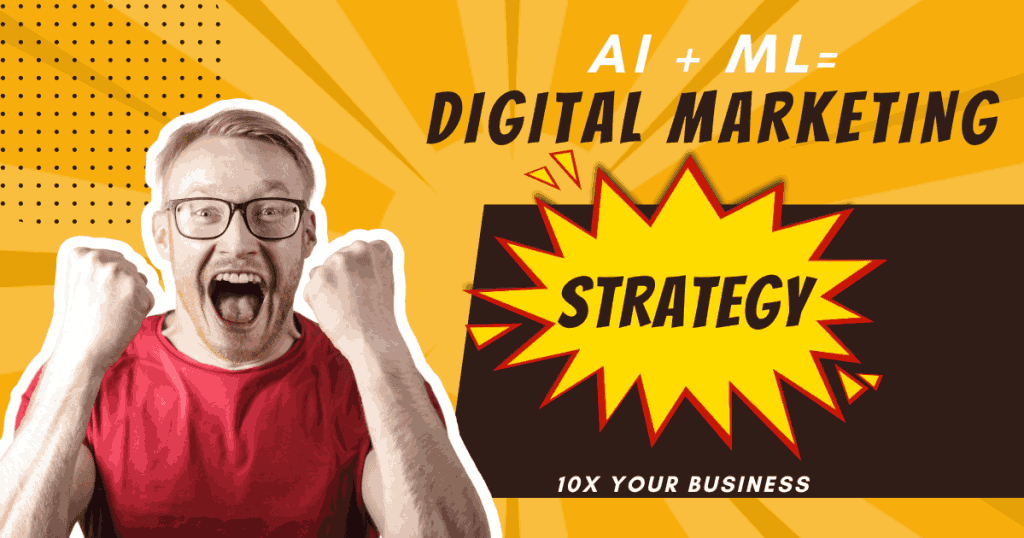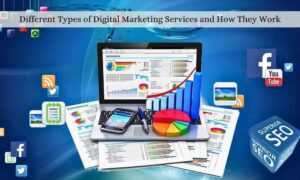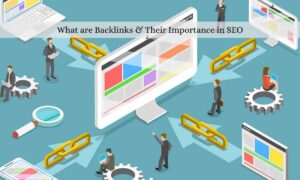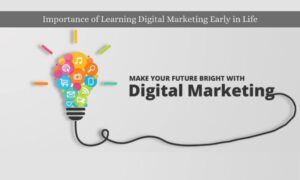Digital marketing strategy is rapidly being transformed by artificial intelligence (AI) and machine learning (ML). These technologies are being used to automate tasks, improve targeting, and personalize customer experiences. As a result, businesses that are not using AI and ML are at a competitive disadvantage.
In this blog post, we will discuss how you can use AI and ML to improve your digital marketing strategy. We will cover the following topics:
What are AI and ML?
AI and ML are two closely related technologies. AI is a broad term that refers to the ability of machines to simulate human intelligence. ML is a subset of AI that focuses on the development of algorithms that can learn and improve over time.
In the context of digital marketing, AI and ML can be used to automate tasks, improve targeting, and personalize customer experiences. For example, AI can be used to:
- Automate customer service tasks, such as answering FAQs and resolving tickets.
- Improve targeting, by using data to identify the most likely customers to convert.
- Personalize customer experiences, by delivering content and offers that are tailored to each individual’s interests.
How can AI and ML be used in digital marketing?
There are many ways that AI and ML can be used in digital marketing. Here are a few examples:
- Chatbots: AI chatbots can be used to provide customer service, answer questions, and even sell products.
- Personalized recommendations: AI can be used to recommend products, services, and content to customers based on their past behavior.
- Predictive analytics: AI can be used to predict future customer behavior, such as which products they are likely to buy or which marketing campaigns they are likely to respond to.
- Content optimization: AI can be used to optimize content for search engines and social media platforms.
- Fraud detection: AI can be used to detect fraudulent activity, such as click fraud and credit card fraud.
Specific examples of how AI and ML are being used
Here are a few specific examples of how AI and ML are being used in digital marketing:
- Amazon: Amazon uses AI to recommend products to customers based on their past purchases and browsing history.
- Netflix: Netflix uses AI to recommend movies and TV shows to customers based on their viewing history.
- Spotify: Spotify uses AI to recommend music to customers based on their listening habits.
- Facebook: Facebook uses AI to target ads to users based on their interests and demographics.
- Google: Google uses AI to personalize search results and deliver relevant ads to users.
Tips for implementing AI and ML in your digital marketing strategy
If you are considering implementing AI and ML in your digital marketing strategy, here are a few tips:
- Start small: Don’t try to implement too much AI and ML at once. Start with a small project and see how it goes.
- Use the right tools: There are a number of AI and ML tools available. Choose the tools that are right for your needs.
- Get the right data: AI and ML algorithms need data to learn and improve. Make sure you have the right data before you start.
- Test and iterate: AI and ML algorithms are constantly learning. Test your algorithms and iterate on them as needed.
How AI and ML are changing the customer journey: AI and ML are changing the way that customers interact with brands. For example, AI chatbots can now answer customer questions and resolve issues in real time, which can free up human customer service representatives to focus on more complex tasks. Additionally, AI-powered personalization tools can deliver more relevant and engaging content to customers, which can help to improve the customer experience and increase conversion rates.
The challenges of implementing AI and ML in digital marketing: While AI and ML can offer significant benefits, there are also some challenges associated with implementing these technologies. For example, it can be difficult to collect and clean the data that is needed to train AI and ML algorithms. Additionally, AI and ML algorithms can be complex and difficult to understand, which can make it challenging to interpret the results of these algorithms.
The future of AI and ML in digital marketing: AI and ML are still in their early stages of development, but they have the potential to revolutionize digital marketing. In the future, we can expect to see even more sophisticated AI and ML applications being used in digital marketing, such as AI-powered predictive analytics tools that can predict future customer behavior with even greater accuracy.
Conclusion:
AI and ML are powerful tools that can be used to improve your digital marketing strategy. By automating tasks, improving targeting, and personalizing customer experiences, AI and ML can help you reach your marketing goals more effectively.
If you are not already using AI and ML in your digital marketing strategy, I encourage you to start exploring these technologies. They have the potential to revolutionize the way you market your products and services.









